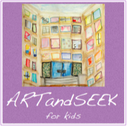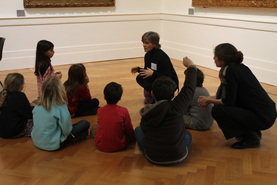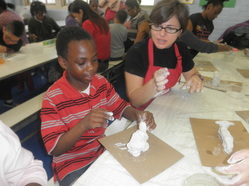What we do |
Our Programmes |
|
We design journeys for the imagination by creating interactive group experiences for children, young adults and families, using Rome’s museums as our playground.
Our native English speaking teachers and museum educators, guide the audience to learn not only how to look at art and artists but also how to interpret themes that impact their own lives such as identity, architectural surroundings, history, friendship, social issues, through ‘investigating’ art as a window to the world. All programmes are designed to foster active learning and engage our audiences in careful observation encouraging the development of English language and critical-thinking skills: we focus not only about taking a tour through a museum, but about communicating our thoughts using art as a tool, to express what is sometimes difficult to describe. We also engage the children with practical art workshops inspired by the themes we explore with each programme, helping students to experience different art activities and build confidence and awareness of their individual strengths and competencies. Our teaching strategies are based on the most advanced practices and methods with the aim to create meaningful experiences with art. |
Museum programmes consist of a 1.5hr visit to any one of Rome's modern and contemporary art museums. The activity is built around a theme and examines 4 to 5 artworks at a time.
During the visit the audience is engaged on two levels: participating in hands-on activities, using different art tools and skills, and being part of a lively discussion facilitated by inquiry open-ended questions. Our school programmes are generally conceived in 3 or 5 sessions. All of them can be adapted, in length and theme, to support specific curriculum areas. During each session at school, the students observe and analyse several pieces of art, reflecting on the artistic process, examining "big questions". They are then engaged in art activities, investigating the properties and possibilities of materials through interdisciplinary learning. We believe that a thematic approach supports student-centered, interdisciplinary teaching. Our charity programmes offer all the above, for free, to schools and communities that deal with vulnerable children and young adults in order to build their resilience, self-confidence and innovativeness as they enter their adult lives. Through the creative arts – including fine arts and storytelling - we focus dialogue around the issues young people are experiencing, the challenges they face and the opportunities available to them as they journey through adulthood. |









